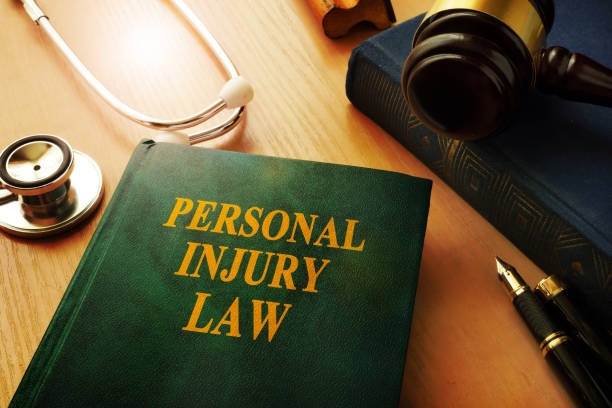If you’re hurt as a result of someone else’s conduct, you may be able to take legal action against them, setting yourself up to recover any damages you sustained as a result of the injury.
However, many people don’t understand the nuances of personal injury cases or the process of filing a claim.
So, what are the first steps associated with filing a personal injury claim?
When to Pursue a Personal Injury Claim
Personal injury lawyers typically have expertise with a wide variety of personal injury claims. If you believe you’ve been hurt as a result of someone else’s actions or negligence, you should contact a personal injury attorney as soon as possible to discuss the situation and the options available to you. This initial meeting is typically associated with no charges, so there’s no reason not to take it.
Common causes of personal injury claims include things like car accidents, dog bites, premises liability cases like slip and fall incidents, and even workplace injuries. The more serious the injury, and the more serious the negligence that caused that injury, the more you should consider pursuing legal action.
The First Steps
The first steps of the process are:
- Get medical attention. Before anything else, you need to get medical attention. After even a minor injury, it’s important to visit a medical professional and have a full assessment done. This is to maximize your potential recovery and create a paper trail to prove that you sustained the full scope of the injuries you claim. After your initial appointment, make sure you attend all your follow-up appointments and comply with any medical advice you receive.
- Gather evidence. In many cases, it pays to gather some evidence even before reaching out to a personal injury attorney. For example, you can take photos and videos of the scene of the accident, you can collect surveillance footage, and you can even write down some information associated with eyewitnesses. The more evidence you have to support your claim, the better. Your lawyer will be able to help you gather even more.
- Talk to a lawyer. At this time, you should talk to a lawyer. Come to the meeting as prepared as possible with all the details you can remember or gather about the incident, as well as with any questions you have about the legal process. The sooner you talk to a lawyer, and the closer you follow their advice, the better your outcomes are going to be.
- Start building the case. Together with your lawyer, you can start building the case. This includes gathering evidence, talking to people who may have been involved in the accident, and preparing the initial paperwork.
- File a complaint. The first pleading in a personal injury case is a complaint. Once the complaint is filed with the court, the process begins.
What Happens Next?
What happens after that?
- A response. After filing the initial complaint and serving proper paperwork, the defendant will have an opportunity to respond with an answer. At this time, they’ll be able to admit or deny various allegations in the complaint and present evidence of their own.
- Settlement negotiations. At this stage of the process, the parties begin negotiating for a potential settlement. Many people believe that personal injury cases are typically decided at trial, but it’s much more common for these cases to be settled out of court. That’s because it’s typically cheaper, more efficient, faster, and less stressful for all parties involved to reach a resolution before going to trial. Even so, settlement negotiations can sometimes drag on for months, or even years, so try to be patient during this process.
- Discovery. After the complaint and answer, the matter will enter discovery. During this phase of the lawsuit, both parties will be responsible for finding and presenting information that’s relevant to the case. Throughout this process, the parties will continue negotiating, and at any point, they may be able to reach a mutually agreeable settlement. Once a settlement is accepted, the matter is over.
- Trial. That said, some civil cases are unable to settle, and they eventually proceed to court. If this happens to you, your lawyer will represent you in the courtroom and represent your interests as best they can. Civil injury cases are typically decided by a judge or a jury, based on the evidence and arguments from both parties.
Filing a personal injury claim and pursuing litigation can be stressful, especially if you’re already grappling with the physical and psychological impact of your injuries. However, if you’re willing to invest time and effort into this process, and if you have a good personal injury attorney working for you, you’ll have a good chance of recovering the full damages you sustained.








